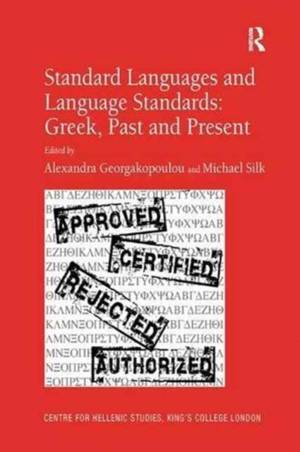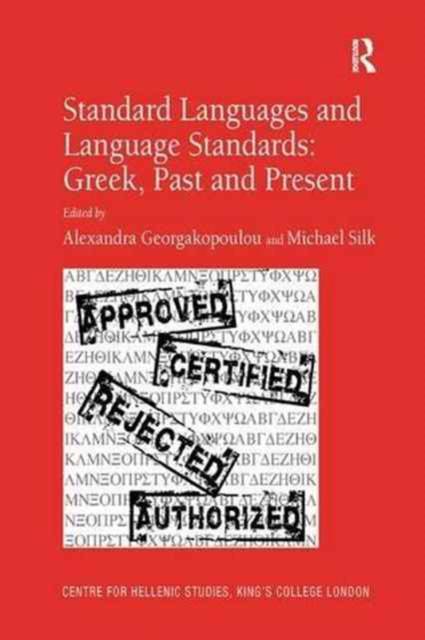
- Afhalen na 1 uur in een winkel met voorraad
- Gratis thuislevering in België vanaf € 30
- Ruim aanbod met 7 miljoen producten
- Afhalen na 1 uur in een winkel met voorraad
- Gratis thuislevering in België vanaf € 30
- Ruim aanbod met 7 miljoen producten
Zoeken
Standard Languages and Language Standards - Greek, Past and Present
Michael Silk
€ 102,45
+ 204 punten
Uitvoering
Omschrijving
Standard Languages and Language Standards: Greek, Past and Present is a collection of essays with a distinctive focus and an unusual range. It brings together scholars from different disciplines, with a variety of perspectives, linguistic and literary, historical and social, to address issues of control, prescription, planning and perceptions of value over the long history of the Greek language, from the age of Homer to the present day. Under particular scrutiny are the processes of establishing a standard and the practices and ideologies of standardization. The diverse points of reference include: the Hellenistic koine and the literary classics of modern Greece; lexicography in late antiquity and today; Byzantine Greek, Pontic Greek and cyber-Greek; contested educational initiatives and competing understandings of the Greek language; the relation of linguistic study to standardization and the logic of a standard language. The aim of this ambitious project is not a comprehensive chronological survey or an exhaustive analysis. Rather, the editors have set out to provide a series of informed overviews and snapshots of telling cases that both illuminate the history of the Greek language and explore the nature of language standardization itself. The volume will be important for students and scholars of the Greek language, past and present, and, beyond the Greek example, for sociolinguists, historians and social scientists with interests in the role of language in the construction of identities.
Specificaties
Betrokkenen
- Auteur(s):
- Uitgeverij:
Inhoud
- Aantal bladzijden:
- 396
- Taal:
- Engels
- Reeks:
Eigenschappen
- Productcode (EAN):
- 9781138261853
- Verschijningsdatum:
- 15/11/2016
- Uitvoering:
- Paperback
- Formaat:
- Trade paperback (VS)
- Afmetingen:
- 156 mm x 234 mm
- Gewicht:
- 553 g

Alleen bij Standaard Boekhandel
+ 204 punten op je klantenkaart van Standaard Boekhandel
Beoordelingen
We publiceren alleen reviews die voldoen aan de voorwaarden voor reviews. Bekijk onze voorwaarden voor reviews.











